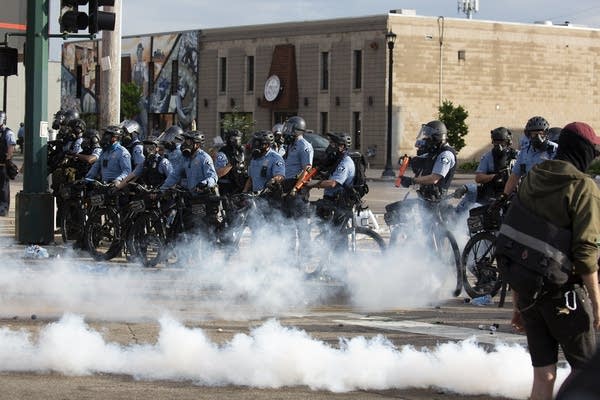Court approves restrictions on MPD use of force during peaceful protests

Go Deeper.
Create an account or log in to save stories.
Like this?
Thanks for liking this story! We have added it to a list of your favorite stories.
Officials with the ACLU-MN say an injunction approved by a federal court judge today will restrict the types of force Minneapolis police officers can use against peaceful protesters.
The measure is part of a class action suit filed by the ACLU on behalf of 12 protesters who say Minneapolis police used unnecessary and excessive force to suppress protesters’ First Amendment rights during protests which followed the police killing of George Floyd in 2020.
Plaintiff attorney Josh Rissman called the injunction historic.
“The City of Minneapolis has agreed to an injunction enforceable in federal court,” said Rissman in a statement. “Anytime the Minneapolis Police Department unlawfully uses rubber bullets, mace or tear gas against peaceful protesters, we can immediately seek to enforce the injunction.”
Turn Up Your Support
MPR News helps you turn down the noise and build shared understanding. Turn up your support for this public resource and keep trusted journalism accessible to all.
The agreement prohibits the city from arresting, threatening to arrest or using physical force like chemical agents, flash bang grenades and foam-tipped bullets against people engaging in lawful demonstrations.
The injunction also limits the use of chemical agents by police to disperse peaceful protests.
The agreement between the City of Minneapolis and the protesters, which was reached in October, also requires the city to pay the plaintiffs a total of $600,000.
Longtime activist and plaintiff Nekima Levy Armstrong says the ruling should act as a wake up call across the state for lawmakers to pass laws that will protect First Amendment rights, regardless of the responding law enforcement agency.
"To use their authority under the law to take action and put forward standards that are in alignment with national and international best practices to protect protesters and others who are out on the front lines," she said.


